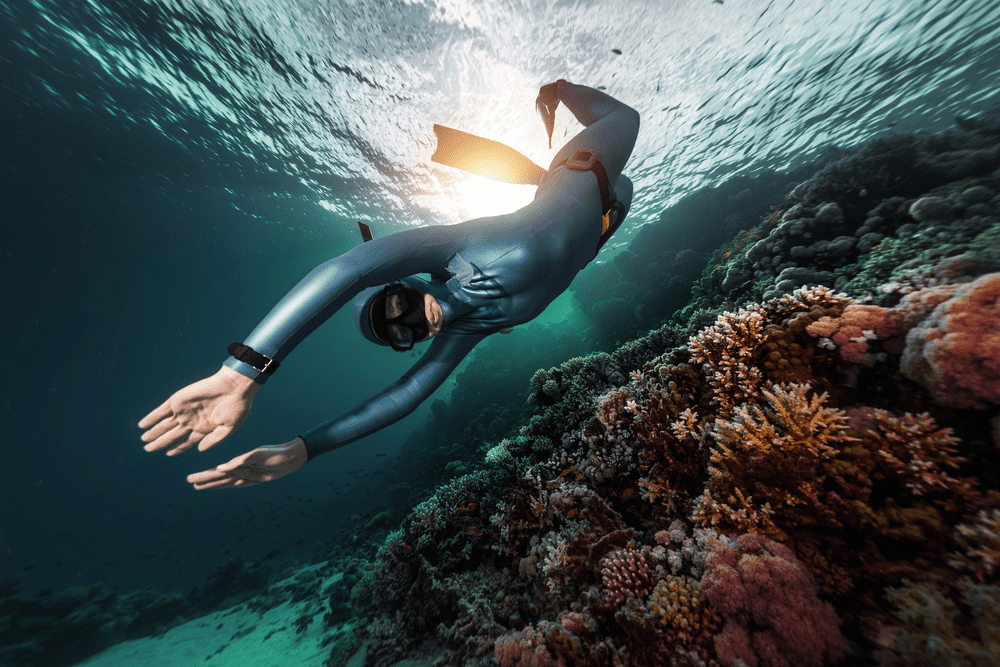*This post may contain affiliate links. As an Amazon Associate we earn from qualifying purchases.
The ocean covers 71 percent of the earth’s surface and it is filled with creatures still unknown to mankind. The true depths and marvels of the ocean floor may never be known, but we can dream. For those who dare to imagine, challenging the limits of the human body is an act of defiance against Neptune’s domain, and the brave men and women who take on this challenge are called free divers. And you’ll be surprised by the deepest free dive recorded.
Practitioners of this sport can reach astonishing depths with completely unsupported breathing. The world’s deepest free dive is a superhuman feat. Stick around, we want to tell you all about it – no need to hold your breath, we promise.
In this article, we will reveal not only the deepest free dive but also the history of the sport, what drives men and women to undertake the challenge, how they prepare for it and what they gain once it’s all said and done. We aim to provide you with all the information you need to understand what free diving is all about and how you can prepare yourself for a free dive should you join the ranks of men and women who have dared to test the limits of human performance.
The deepest free dive didn’t happen by accident. It took years of preparation and a lifetime of love of the oceans. We will tell you all about it – let’s dive in!
What Is Free Diving?
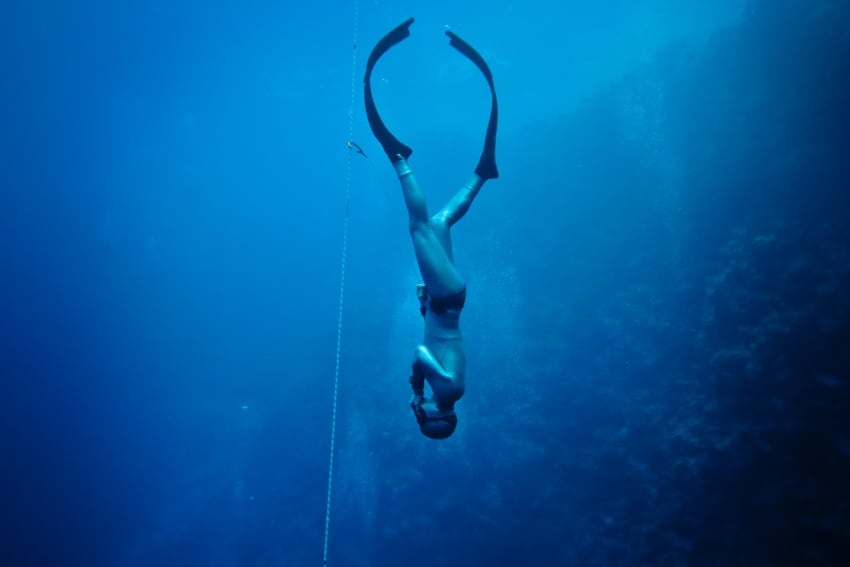
Free diving is the activity or sport of diving freely underwater without a breathing apparatus to support you. The practice has been around for as long as mankind and was used mostly out of the need to fish for food and valuable items for trade. Today it is a sport in every sense of the word and the individuals who undertake the task know well the dangers that come with pushing their bodies past what is considered humanly possible. Whether out snorkeling the beach or playing the breath game under the pool with your friends, we are sure you have tested yourself as well.
Different Types of Free Diving
There are many forms and styles of free diving and some can be slightly more unnerving than others. Free Immersion Free Diving comprises pulling down a rope and back while no fins are used. Free Immersion Free Diving is used for beginners of the sport and helps you understand the equalization process of sinuses, ears, mask, etc. Constant Weight Free Diving is another discipline worth mentioning as it is the form of free diving most widely recognized and comprises the diver descending and ascending with a constant weight while using their own power. Constant Weight remains the standard in free diving.
How Deep Is Deep?
The average ocean depth is 2.3 miles. That is very far down and it’s not even as far as we know can be reached. The deepest explored sections of the ocean were first documented by the HMS Challenger in 1872 and through 1876. During the years of the expedition, they sailed the Pacific Ocean near the coast of Guam and collected specimens using deep nets and probes suspended by long ropes.
Their sounding at the southern end of the Mariana trench (8,184 meters) was the deepest anyone had ever probed. Today this section is called the Challenger Deep and has been explored by many scientists since.
The Drive to Deep Free Dive
What makes these athletes undertake such a dangerous sport? The challenge, of course. Each individual wants to both set their personal marker and leave behind a legacy that resonates with future practitioners of the sport who in turn will look to write their own history. The deepest free dive, as you can imagine, required a level of drive and determination that has yet to be matched, but many will continue to muster up the courage and will to challenge the record. There is something to be said for free divers, and that is that they have guts.
Competitive Free Diving
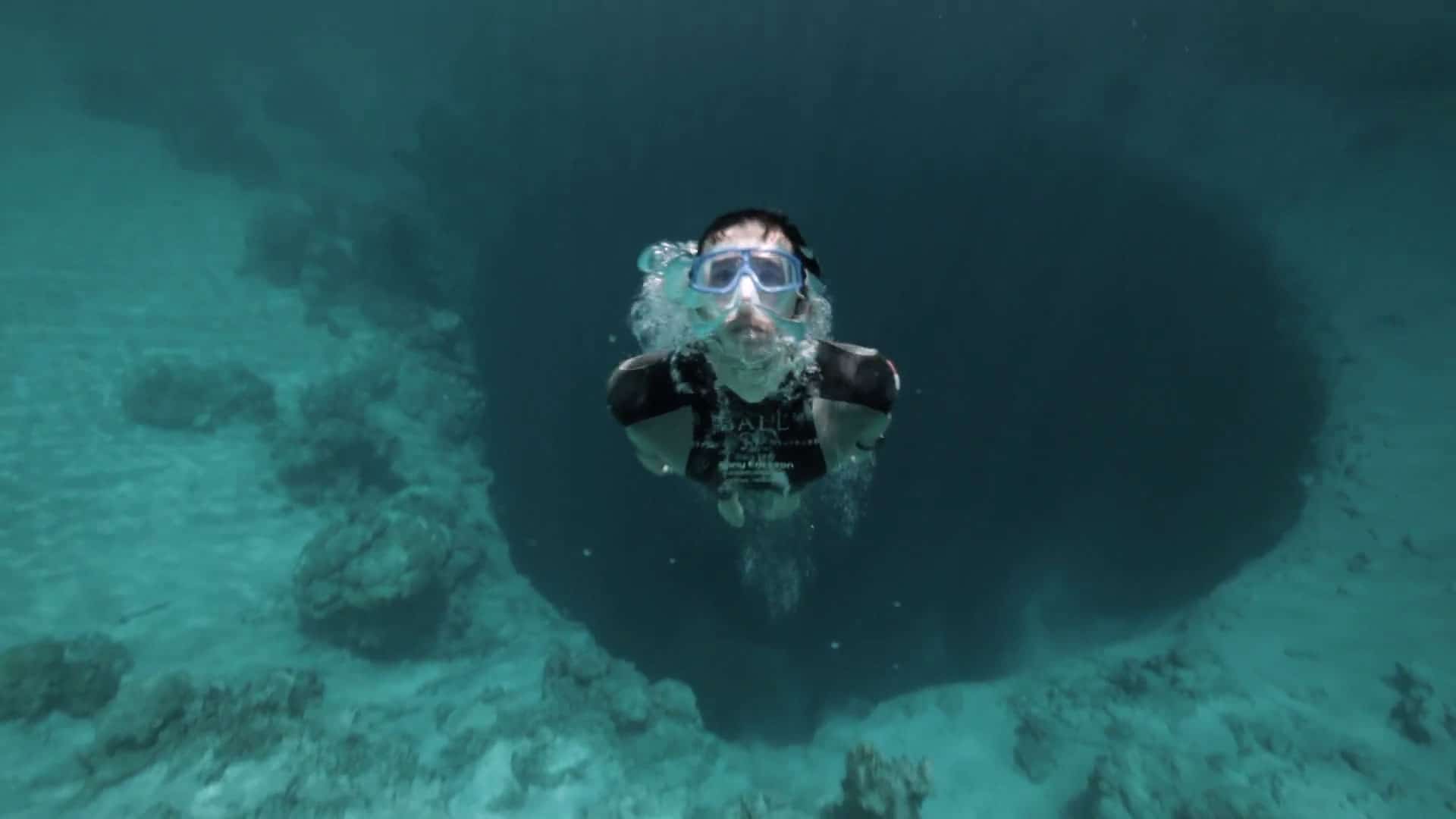
There really could not be a deepest free dive recorded if we had not started, well, recording dives. The 90s saw competitive diving come to prominence. Stars such as William Trubridge and Tanya Streeter made their mark by recording unprecedented dives of up to 160 meters, which is Streeter’s 2003 world record. Records continue to be recorded and are one of the main reasons new competitors emerge year after year. Records, after all, are meant to be broken. Competitions are ongoing and divers are never discouraged.
A Sea of Wonders
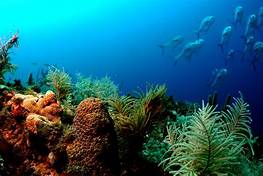
All the beautiful marine life that inhabits the earth with us is enough for many divers to find the drive to pursue the craft. Divers have often expressed their love for the craft and for all that nature has to offer. Being a part if only momentarily of an aquatic world can truly be inspirational, and much like man’s dream of flying, the same can be said of exploring the depths of the ocean. Mankind can be rebellious and this sport is simply another act of defiance. Men and women have dared to go where no other would dare, and this brave and sometimes foolish endeavor deserves recognition.
How to Reach the Deepest Free Dive
How does one reach unbelievable depths? Preparation, preparation, and more preparation. Divers are the utmost professionals and the deepest free dive is the greatest example of how hard work can pay off. You must be in excellent physical shape but also in prime mental health. The process of diving requires you to let go and immerse yourself entirely in the moment.
During your descent, your body will experience changes in pressure that will aim to crush what little air you already have in your lungs. This makes everything more difficult and thus requires you to know both your body and your mind very well.
1. Preparation
We have repeated this, but it honestly cannot be stressed enough. German free diver Tom Sietas held his breath underwater for over 22 minutes. Yes, that is insane, but it wasn’t luck, that’s for sure. Divers spend years practicing and perfecting rigorous breathing exercises that maximize lung capacity while attaining the knowledge of underwater pressure changes that is necessary to minimize risk when the time comes to go underwater.
In terms of mental health, all distractions must be set aside as diving requires complete awareness to avoid dangerous situations that can put your life at risk. Be prepared at all times and keep calm.
2. Mental Clarity
Most free divers understand that nothing can get in the way of their goal, certainly not their own mental state. Having mental clarity is their greatest ally when descending into the unknown as pressure changes can create a whole array of issues that, without the proper understanding, can lead to fatal consequences.
Mental fortitude also allows the diver to push beyond their limits, eliminating fear and allowing them to soldier on even when they know they shouldn’t. This is an extreme sport after all. Many records have been set but only one can claim the title of deepest free dive and we can assure that mental clarity played a big part in the process.
The Deepest Free Dive
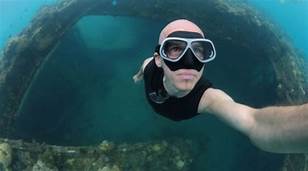
We really hope you have not been holding your breath this whole time, but here it is, at last, the deepest free dive. Austrian diver Herbert Nitsch holds the world record for the deepest free dive recorded. Herbert competed in the “No Limits” discipline and set an unprecedented record depth of 214 meters or 702 feet. The pressure that is felt at the depth that Herbert reached could easily crush the lungs of most people but he was able to tap not only into his peak physical power but also into his mental fortitude in order to do the impossible.
Herbert is now known as “the deepest man on earth” and holds records in several other free diving categories. Impressive right? Herbert surpassed his own record in 2013 and reached a depth of 253 meters, so if you thought we had gone as deep as we could you were mistaken. His record has yet to be broken but many surely will try, and that is exactly why the sport lives on. Nitsch’s accomplishments came at a price as his latest record dive caused him to suffer multiple strokes due to decompression sickness; however, he has made an incredible recovery and battled balance issues on land to return to the sea.
Conclusion
What do you think? Are you ready to explore the dark depths of the ocean? The limits of what is possible? We cannot answer these questions for you but we hope that we have provided some information you will find useful in your quest to reach the sea. The deepest free dive record is meant to be broken and, like Nitsch, there are many willing to do whatever it takes to cement their place in the history books. Take a deep breath and try to remember everything you have learned in this article. Who knows – the next record might belong to you.

